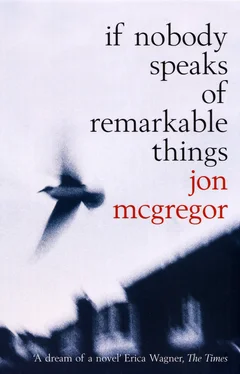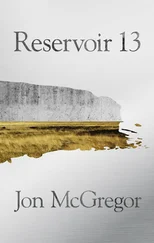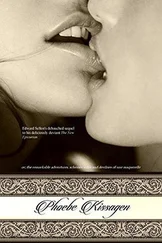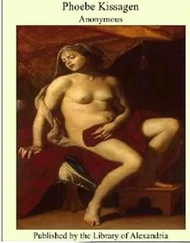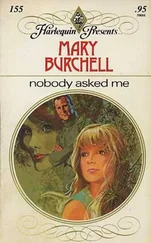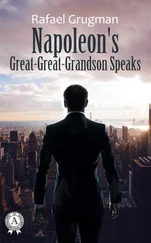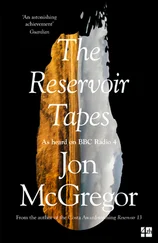Outside, the sound of a tennis ball bouncing in the road, a cricket bat banging against the tarmac, boys shouting, music passing in a car with a heartbeat thump.
He follows the contours of each scar under the water, pressing lightly, pressing as hard as he can bear, trying to soften and ease the skin, trying to massage the flesh back into shape. He watches the colour changing as the heat of the water soaks through, flushing and fading under the pressure of his printless fingers, the blood struggling to follow his touch.
He lifts his hands up into the air, the inky water dripping off them into the sink, and his hands are clean but they are not healed. They are still ruined and useless. He pats them against a towel, careful not to rub the roughness against his skin, waves them through the air until they are dry, reaches up to put the bottle of iodine back into the cabinet. As he closes the cabinet door, a mirror swings into sight and flings him an unwanted glimpse of his face, the sagging mask of it, the familiar wrinkles and twists which mark the face that is not his face. And he looks away, and he opens the bathroom door, and his daughter stands there looking at him.
She says daddy does it hurt?
He says yes my love, it does hurt but it is okay, and he smiles, a small hard crack of a smile, and his voice is thick with it. He touches her on the head, carefully, and he says some food now okay? and she says yay and clatters down the stairs ahead of him.
In the bathroom sink the water sits undrained, cooling, ripples echoing and fading across the surface. A trickle of water weaves its way down the hanging towel, falling away from broken blue handprints, falling softly to the floor.
It was at my grandmother’s funeral.
She’d been ill for a long time, and so when she died I wasn’t much upset and I wasn’t worried about going up for the service.
I took the time off work, I bought a black dress and I booked the train up to Aberdeen.
And on the way up I wasn’t thinking about my grandmother, about sadness or loss or any of those things, I was wondering about what would happen, who might be there, what my first funeral would be like.
I was interested to meet all these people my mother had kept us clear of, to perhaps find out more about the whole Scottish side of the family.
I thought I might find out why my mother had chosen to move so far away and stay there.
It was a long long journey, and I spent most of the time staring out of the window, watching the scenery change as we got further north, buildings and roads giving way to empty swathes of heather and sheep.
The rain began to close in the other side of Edinburgh, the wind lifting the water from the sea and flinging it against the side of the train, the landscape shrouded in a grey veil.
By the time we pulled into Aberdeen it was constant, and I was wishing I’d brought an umbrella.
I met my dad at the station, he touched his hands to my shoulders and said hello, and he drove me to the house of one of the many Scottish relatives I’d never met.
My mother wasn’t there, and nobody seemed to want to mention the fact, she’d said she felt unable to face the journey and that seemed to be all there was to it.
I didn’t even hear anyone asking my father how she was.
It was a small house, and it was soon crammed full of loudvoiced relatives, squeezing into the front room the same way the men were squeezed into their dark suits.
I was disappointed that none of them were wearing kilts.
I perched on the arm of a sofa, sipping the sugary tea someone had poured for me and watching the conversation ebb and flow.
They seemed almost foreign, all bright blue eyes and flushed red cheeks, skin beaten smooth by bitter winds and I couldn’t imagine being related to them.
Someone said and what about you hen, what is it you do, and I had to tell them briefly about the office and the work I did there.
There was a pause, and then a silver-haired man piped up with something about football and the room was loud and full again.
In Scotland the men of the family put the body in the ground.
I hadn’t known this, I wasn’t expecting it, and it touched a place inside me to see it.
Eight of them are chosen, the brothers and cousins and sons, the friends accepted as honorary family, the relations by marriage.
My father was included, and I don’t think he was expecting it either.
I saw him wiping his hands on his trousers and loosening his tie.
They are chosen, and given a number corresponding to a position around the coffin, and given this number on a piece of card which they turn over in their pockets throughout the service, checking it occasionally, putting it back, wiping a pair of fingers across a nervous forehead.
They get called by the undertaker, one at a time, and they move away from their women to the graveside.
I spoke to him about it in the evening, the boy, and he said it was like being called to your place in the way of things.
I knew then that I was going to go to bed with him, when he rolled his soft voice around that phrase, in the way of things.
I watched them that day, the eight of them standing around the grave, legs slightly apart, heads slightly bowed, freshly shined shoes pressing into freshly dug earth.
The coffin was hoisted into position by the bearers and held there for a moment.
Suspended over the open grave.
Poised in the outside world.
And then the men lowered it, slowly, each of them gripping their tasselled rope and letting it pass through their hands until the coffin came to rest.
There was a soft muzzle of rain falling, there was a breathless silence in the air, and it was in that moment that I started thinking about it all over again.
About that last day of summer, three years before, the last day in that house.
The child, at the end of the day, and that moment of shocking inevitability.
The ropes were dropped into the grave, and the men returned to their places, and I tried to catch my father’s eye but he wouldn’t look at me.
It’s called taking the cord he said, the boy, when I asked him about it later.
It’s a real honour he said, a duty, and but it’s a shock as well though.
He said it’s a shock because a coffin with a body loaded inside, it’s a heavy thing you know?
Because even with the eight of you stood around that hole in the ground it’s a real effort to control the descent like it’s not just a symbolic thing he said, and I listened and he had a lovely voice.
And see this he said, see it takes a long time for the coffin to get to the bottom, and you suddenly realise how much of a weight of earth is going to press down upon it, upon this person you’re laying down you know?
He said, and then it really hits you, they’re in a box, they’re being buried and they’ll stay gone, like snug in this press of thick wet earth, and I nodded and found myself saying aye and he laughed and said you going native already?
He said when I put my granda in the ground, it felt like I left a part of me there, and brought a part of it away with me.
He said like the smell of the earth, like the burn of the rope against my hands, like the minister’s voice saying the things.
I said do you want to go for a walk?
I met him after the service, at the wake, in the lounge bar of a local hotel.
He was working there, serving out the food, and later on I got talking to him.
I was sat at a table on my own and he came over to empty an ashtray, and he said you alright there then?
I’d already noticed him, he had blond hair and big shoulders and a very still way of moving around the room.
I’d already smiled at him.
Читать дальше
Конец ознакомительного отрывка
Купить книгу
